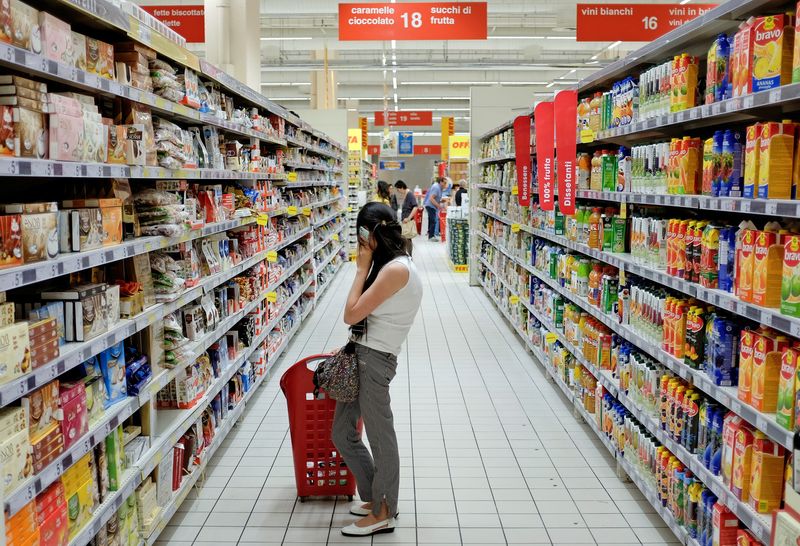Italian government to meet supermarkets, small retailers to address high prices
2023.09.06 07:45

© Reuters. FILE PHOTO: A woman is seen in a mall in Rome, Italy, May 19, 2017. REUTERS/Max Rossi/File Photo
By Giuseppe Fonte
ROME (Reuters) – Italy’s government will meet with supermarkets and small retailers’ associations on Wednesday to address stubborn inflation in the prices of consumer staples, people close to the matter said on Wednesday.
Persistently high inflation is a headache for nationalist Prime Minister Giorgia Meloni, at a time when companies are often blamed for increasing prices beyond their production costs.
Meloni is also facing mounting discontent over cuts her government imposed to a poverty relief scheme affecting hundreds of thousands of people.
The government has been trying for weeks to negotiate an agreement between producers and retailers to cap prices of food and other essentials from October to December. But sources close to the plans said on Aug. 3 that Rome had not managed to get support from industry associations.
While supermarkets and shopkeepers are expected to endorse the plan in the next few days, the industry ministry is still trying to persuade producers to submit to a similar deal to give the initiative more muscle, the people said on Wednesday.
Researchers from the International Monetary Fund (IMF) wrote in June that rising corporate profits accounted for almost half the increase in Europe’s inflation over the past two years.
Rome is not alone in its concerns, as France announced a similar agreement last month to curb inflation.
Under the government-backed scheme, supermarket chains and small retailers should define a basket of food and non-food essential staples to which lowered prices apply, a draft Memorandum of Understanding (MoU) seen by Reuters showed.
Retail stores taking part in the campaign would be marked with government window stickers in the green, white and red of the Italian flag with “anti-inflation quarter” written on it, a reference to the last three months of the year.
Basic necessities include childcare and personal care products, the document said.
The MoU also envisages that distributors’ associations will inform the government by Sept. 20 about the intention of their firms to join the initiative.








